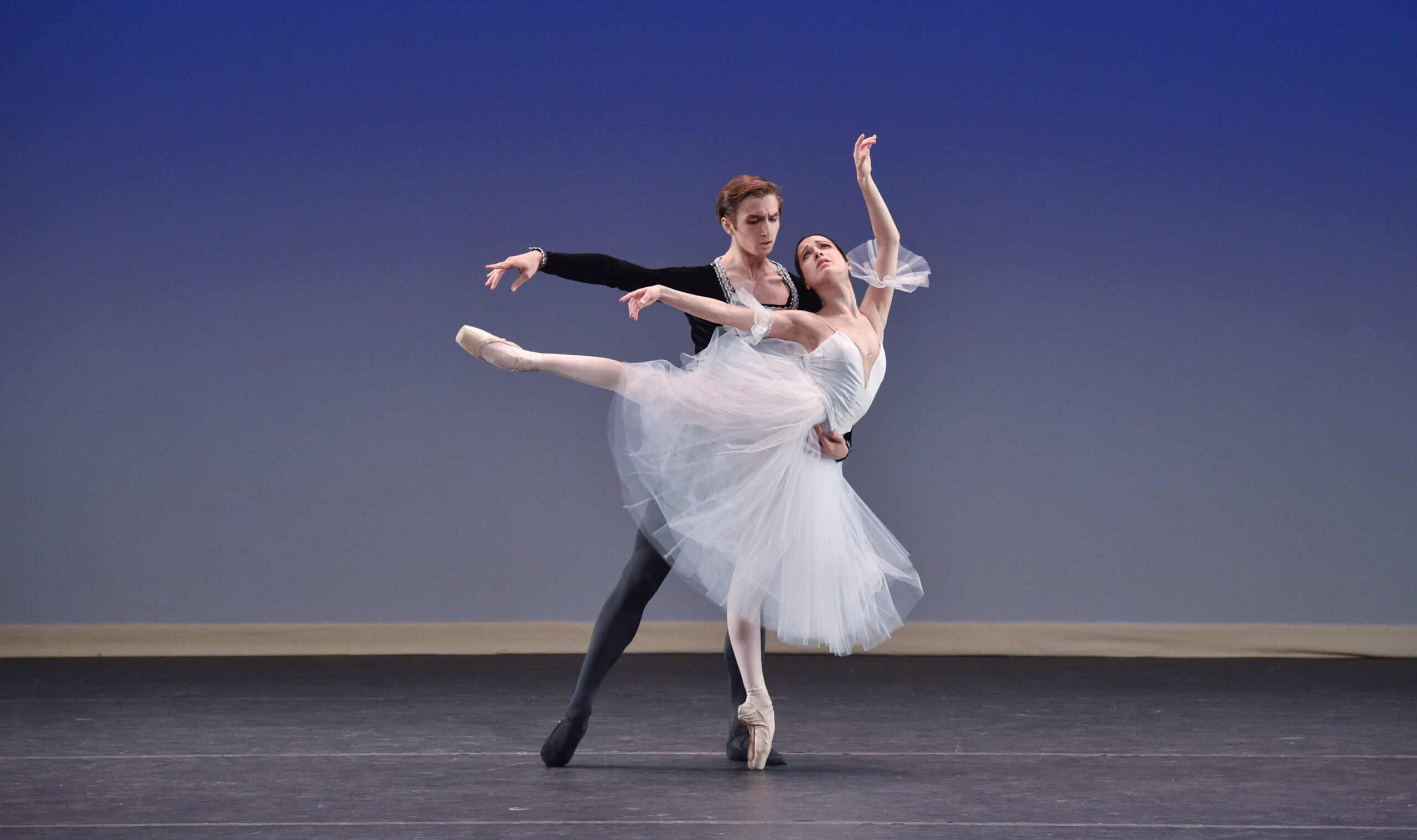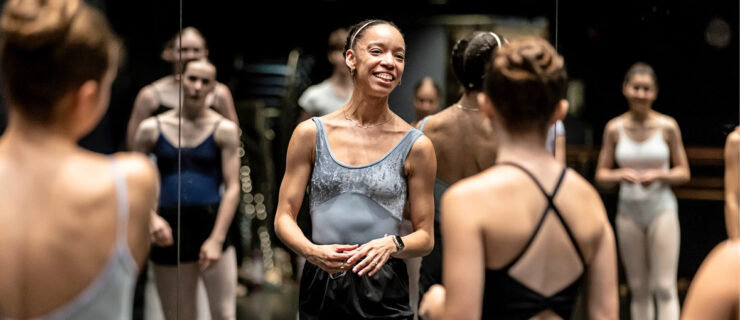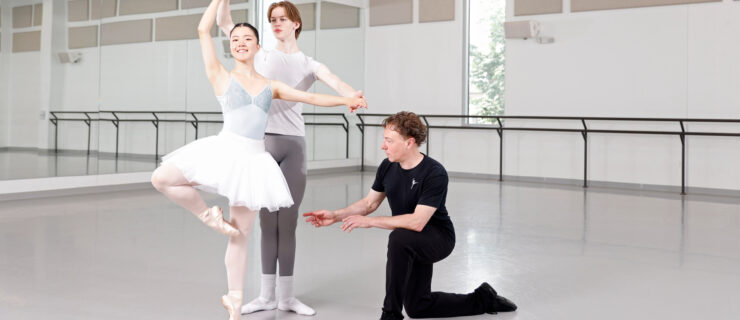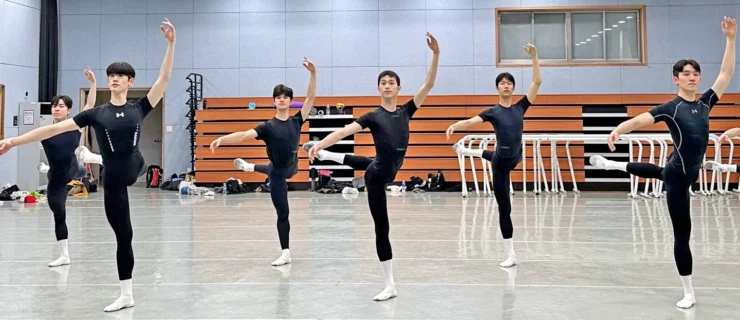To Compete or Not to Compete: How Ellison Ballet Teaches Its Students Healthy Performance Practices
For 15-year-old Ellison Ballet student Viktoria Papakalodouka, dancing has always been about performing. “Whenever I’m onstage, I feel like it’s my home,” she says. Papakalodouka knows the stage is something familiar to professional dancers, but for students, chances to perform may be less frequent. At Ellison Ballet, she often relies on competition opportunities to fill this gap.
“All performing comes with pressure,” says Ellison Ballet founder and artistic director Edward Ellison, who is mindful of how competitions can fit into a student’s training. “But competition pressure is even more intense.” As a teacher, he’s careful to judge when it is the right time for his students to compete and when it is best for them to spend that time in the studio.
His school’s curriculum ensures that students—whether they are competing or not—never lose sight of the connection between the work in the studio and the results onstage. This, he says, is what makes Ellison Ballet dancers so well-primed for professional life.
When Competing Is the Right Choice
Ellison cites several reasons in support of competitions. “For the more advanced student looking to audition for companies in the next couple years, certain competitions can be wonderful exposure to company directors in attendance,” he says. “A number of Ellison Ballet students have acquired professional contracts in world-class companies from being seen at competition.”
Jolanta Valeikaite, Ellison Ballet faculty member, says training for competitions also provides the scaffolding for important studio time. “Extra time in the studio and hard work prepares students to become not just successful competitors but also successful professional dancers,” she says.
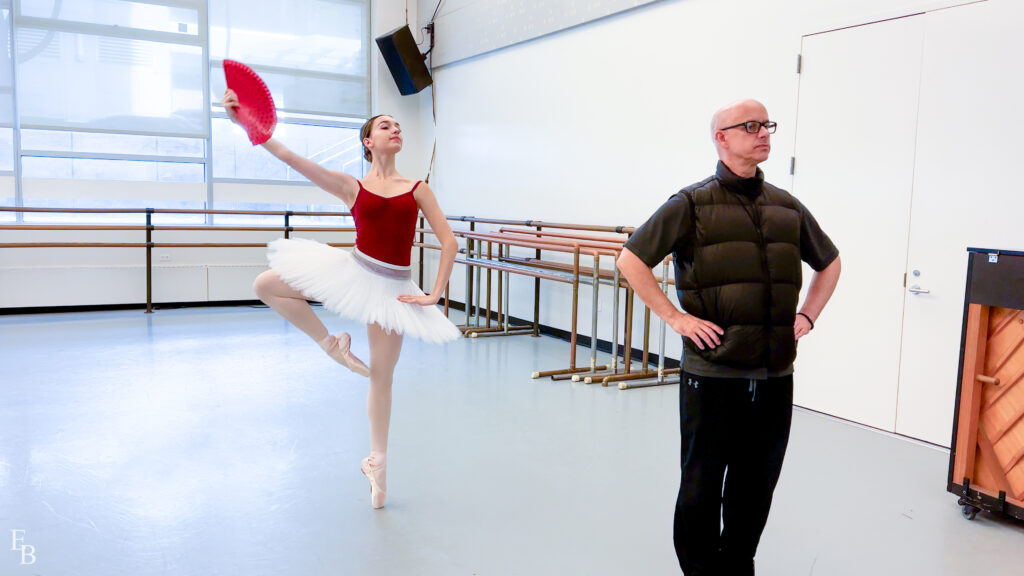
This benefit is in large part thanks to Ellison Ballet’s specific approach to competition prep: Students never substitute rehearsals for their regular training. “All rehearsals are done separately from school classes,” Ellison says. This structure guarantees that a student’s competition experience becomes much greater than their few minutes onstage, and the new type of studio work often gives way to increased confidence overall.
Papakalodouka, who was the Junior Division Grand Prix recipient at the 2023 ADC|IBC and will be competing at the Prix de Lausanne in 2024, agrees. “I feel like the more you perform, the more you understand,” she says, noting the ways in which her competition experiences begin to build on each other as she applies what she’s learned.
“The most important priority is to seek the finest coaching possible from a highly experienced, dedicated, knowledgeable teacher,” says Ellison.
For Valeikaite, good coaching like this can help guarantee a positive learning experience, regardless of the competition’s outcome. “In my opinion, a student sometimes learns more from failure than from success because it can make the student more resilient and inspire them to work harder and achieve more in future attempts,” she says. “The time, commitment, and training that they have invested makes them winners.”
The Learning Doesn’t End: When It’s Best Not to Compete
Despite the benefits, Ellison remains clear: “Knowing if your technical abilities are up to par or not should not be overshadowed by one’s sheer desire to compete.” Sometimes, he says, it is just not the right time, or the right fit.
Papakalodouka, for example, was a student at Ellison Ballet for more than a year before she headed to her first competition, the ADC|IBC in 2022. “If you don’t feel prepared,” she says, “I think it’s best you don’t go to just go.”
For each of his students, Ellison makes sure he’s confident in their foundation rather than pushing them to a competition where they could easily become overwhelmed or discouraged. “It’s so important to first focus on building the strong, clear foundation,” he says. “Trust when your director and teachers determine when you’re ready, or if more training time is still necessary.”
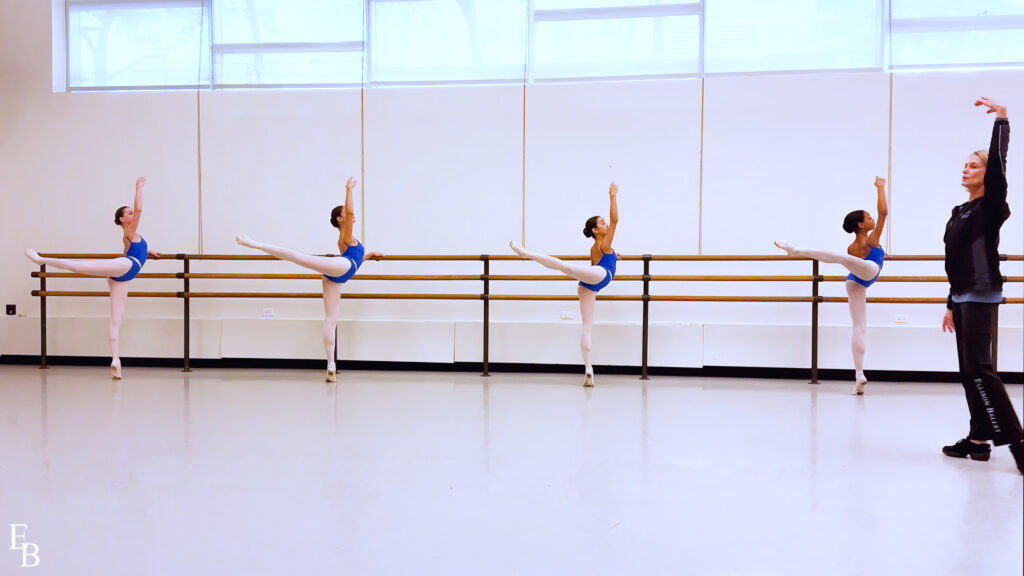
In some instances, Ellison makes a call against competing even for students that have very developed skills. “Sometimes, a well-rounded dancer who will be of great value to a company might not necessarily be successful at competing,” he says, noting the ways that many competitions reward “more extreme qualities,” like exaggerated flexibility, powerhouse turns, and other tricks of physicality.
“Those qualities may do well at a competition, but [are] not necessarily what allows a dancer to achieve success in the professional world,” he says.
When this is the case, he continues, it’s sometimes best to focus on auditioning for companies, or their dream school, rather than expend the “time, energy, and money required for competition.”
This approach is echoed in the way Valeikaite encourages her students to always see competitions as one small part of a larger training goal. “It’s important for student competitors to realize that the learning doesn’t end after the competition,” Valeikaite says. “A ballet career is a lifetime learning experience that will never end.”
Audition registration is now open for Ellison Ballet’s four summer programs, including the new PREMIER COACHING: Classical Variations Intensive with Edward Ellison and Jolanta Valeikaite in Los Angeles.
